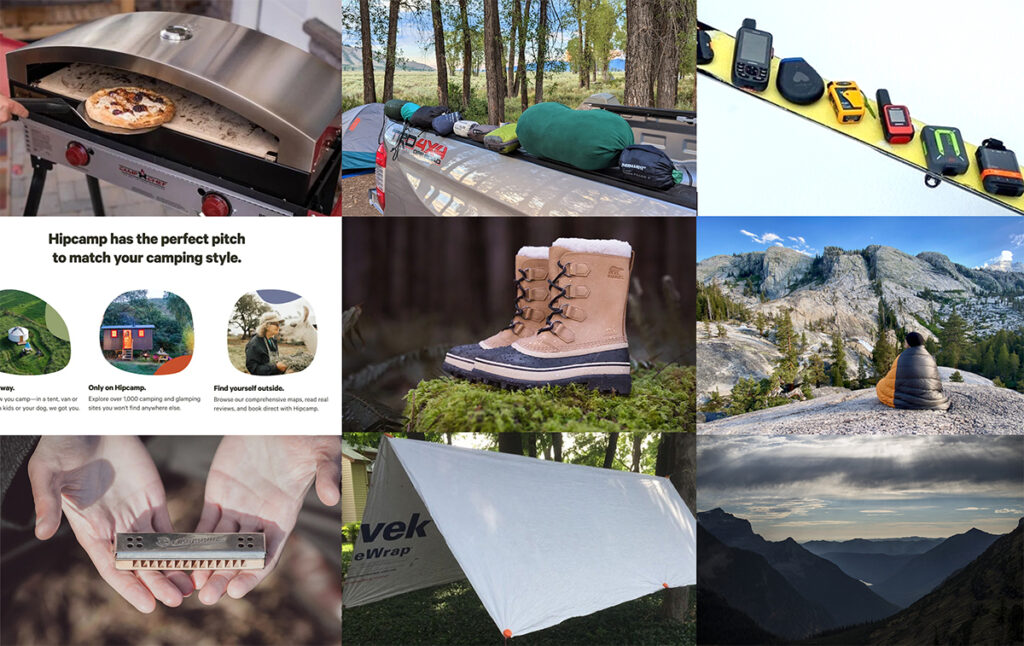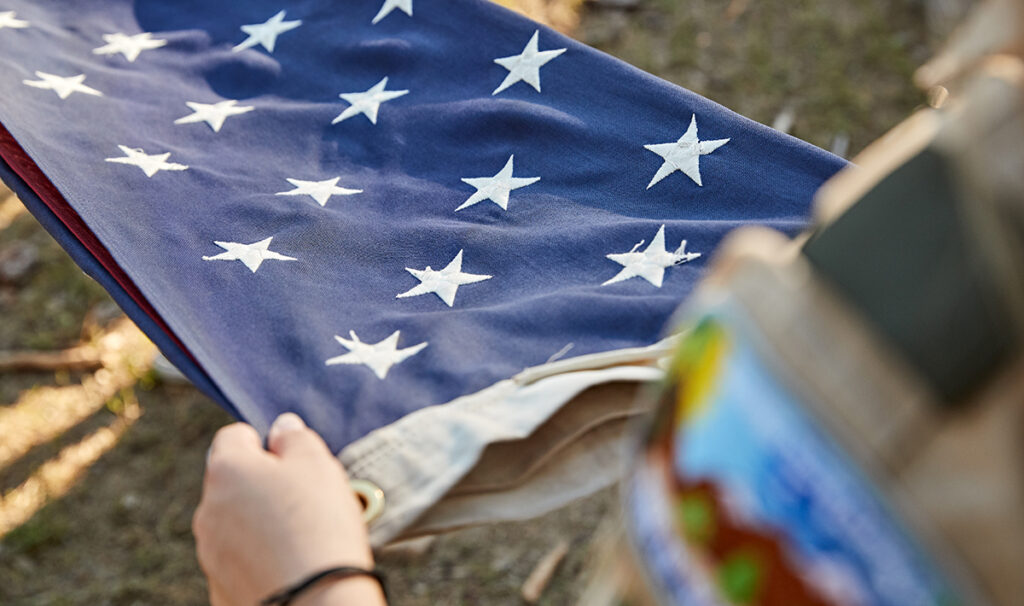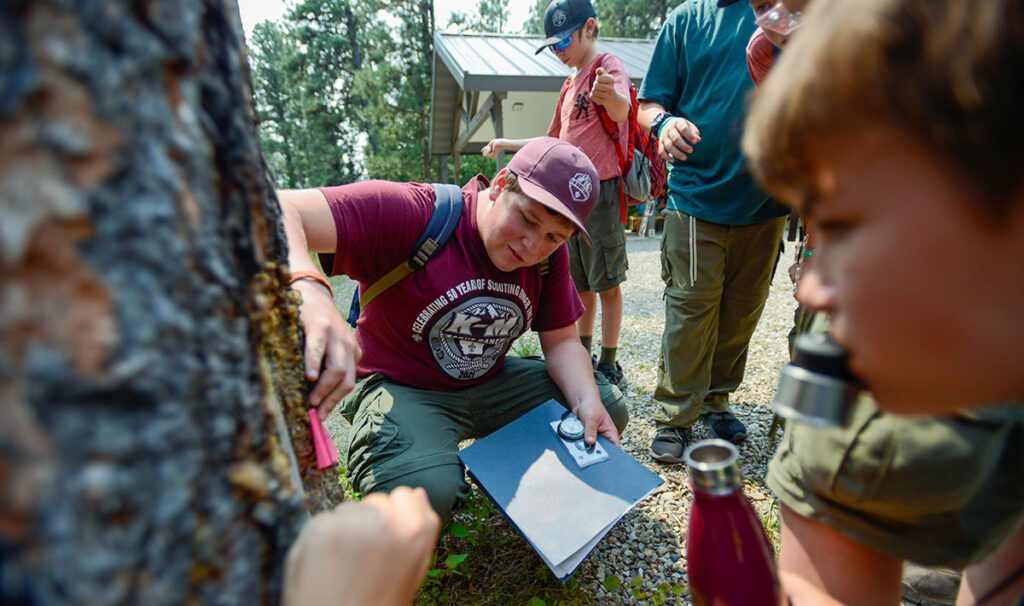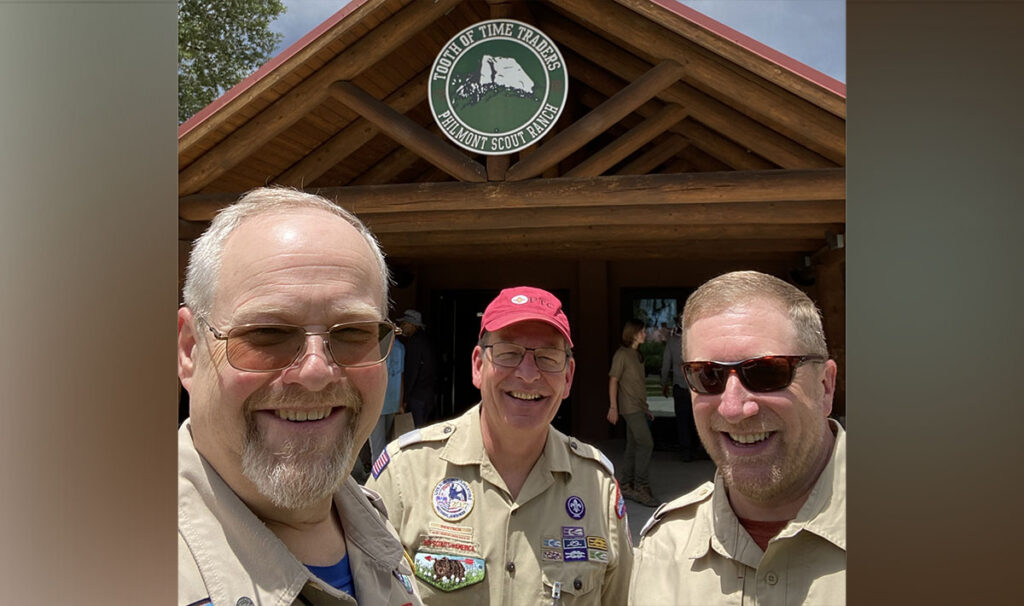
Your council’s Key 3 (Walt McIntosh, Council President; Jory Dellinger, Scout Executive; and Scott Hooper, Council Commissioner) recently spent a week at Philmont near Cimarron, N.M., to attend Key 3 training at the Philmont Training Center.
Additionally, we had the privilege of experiencing the beauty and grandeur of Scouting America’s first and foremost high adventure base.
If you have not been to Philmont, it is worth the trip. The high plains, the mountains, the National Scouting Museum, and the excitement of the Philmont participants make Philmont a “mountain top” experience, even if you do not go on a trek. The wildlife on and around the property, including mule deer, antelope, elk, and bison, has caused the area to be described as an American Serengeti.
While the scenery was spectacular, something equally spectacular and humbling occurred in our classroom.
Class participants were one or more of the Key 3 from various councils nationwide. Some had been in their role for a long time, while others were beginning their role.
At the start of class, the lead instructor ran us through an ice-breaker exercise where it became clear we had centuries of combined Scouting experience in the room. Several pupils were recognized as former national officers, national committee members, and national chairpersons. The instructor went on to point out that our class had six Silver Buffalo recipients, Scouting’s highest accolade for service at a national level.
Clearly, we were in a room full of Scouting giants.
So why did your Key 3 and these giants of Scouting take time out of their schedules, travel hundreds to thousands of miles, and pay for the course and travel out of their own pockets? Because they all appreciate the immense value of training.
Those nationally recognized Scouters have “been there and done that”, but they also know that the exchange of information and ideas occurring at continuing training helps them do their Scouting roles better, faster, and easier.
We all came away with new ideas, better understandings, new peers we can call on when questions arise, and a group of new friends we will continue to meet and greet as we proceed down the Scouting trail.
The Philmont Training Center certainly provides outstanding training, but these same principles and benefits (new ideas, new friends, new peers, and a better ability to succeed in your Scouting role) also happen at District and Council-level training.
The first step is to ensure you are current with the available online training for your role on my.scouting.org. If you have never been to an in-person training session, or haven’t been in some time – try it, you’ll like it. You might learn a few things and meet a few people who will help you to more effectively deliver the promise of Scouting to the youth in your unit.
Yours in Scouting,
Scott Hooper
Montana Council Commissioner

